‘Doctor Who’ rewatch: Season three ranked
An odd season offers some high highs and low lows
Welcome to Girl Culture, the newsletter where Caroline Siede examines pop culture, feminism, and more. Learn more about Girl Culture’s mission here
After a stellar first season and a solid, if uneven, second one, Doctor Who’s third season is a bit of a conundrum. It’s a real “best of times, worst of times” situation, with some of the most iconic episodes of NuWho sitting alongside some of its worst. And the overall season is characterized by a sort of grim, gritty melancholy that can be downright off-putting at times.
But one thing this rewatch clarified for me is how much that off-putting quality is very much an intentional reflection of the Doctor’s own messy headspace. Still grieving the loss of Ross, Ten is in his real Fuck Boy era here, casually leading Martha on while denying any culpability in what he’s doing. And Martha offers some welcome representation for the smart, capable women who somehow still find themselves ignoring red flags and falling deep into unrequited love—even as they realize just how self-destructive that is.
Of course, it would be nice if she could be more than that as well. One of the big limitations of season three is that it doesn’t grant Martha the same complexities and nuances as Doctor Who’s best companions (nor is Freema Agyeman a strong enough performer to make up for the thin writing). Martha is a companion who never quite lived up to her potential. Still, her more limited arc fits within a season that’s all about loneliness, muddled emotions, and the imperfect coping mechanisms we use to fill the voids in our lives. And here’s how I’d rank its high highs and low (low) lows:
LOWER TIER
12. “Daleks in Manhattan” / “Evolution of the Daleks” (season three, episodes four and five)
What happens when you combine a campy B-movie aesthetic with an earnest Great Depression class story and a Dalek morality tale? A whole lot of mess—and I’m not just talking about those terrible New Yawk accents. It’s always a slightly dodgy proposition when Doctor Who decides to set a story in America. And this bizarre two-parter is a worst-case scenario for what can go wrong when Who goes Stateside, not to mention when it starts to overuse a classic villain. Any potential in the episode’s 1930s set-up goes out the window the minute that ridiculous human-Dalek appears onscreen. And even a guest appearance from baby Andrew Garfield isn’t enough to save it.
11. “The Lazarus Experiment” (season three, episode six)
“Utterly forgettable” would be a charitable way to describe an episode that forces you to watch Mark Gatiss play a creepy old man, a creepy young man, and a creepy lizard man. But this half-baked episode is too boring to be actively offensive. Unfortunately, it’s also the episode where it becomes clear that the depth and specificity granted to Rose and her family just isn’t going to extend to Martha in the same way. And that makes it an easy “skip” on any season three revisit.
10. “The Shakespeare Code” (season three, episode two)
The thing about “The Shakespeare Code” is that it should work like gangbusters. William Shakespeare is a natural fit for a historical celebrity outing and the Elizabethan era is a fun one for the show to visit. But this episode leans towards the cheesier end of the Who spectrum in a way that doesn’t wind up serving its story particularly well. Shakespeare himself is weirdly bland as a character, and while the burgeoning tension in Martha and the Doctor’s relationship spices things up a bit, on the whole this episode is missing a level of cleverness befitting a story about one of the cleverest men who ever lived.
9. “The Sound of Drums” / “Last of the Time Lords” (season three, episodes twelve and thirteen)
The weakest of RTD’s finales, the one thing this two-parter has going for it is the phenomenal chemistry between David Tennant’s Doctor and John Simm’s Master. Unfortunately, you have to sit through a whole lot of nonsense to get to that. The worst offender is the weird Dobby Doctor CGI monstrosity, but there’s also the odd pacing, the way-too-upsetting twist about the Toclafane, and the fact that the final reset just feels a bit too easy. While it’s nice to see a companion get a non-traumatic exit for once, it’s a shame it comes in a finale that undercuts an otherwise solid run of episodes in the second half of season three.
SOLID TIER
8. “The Runaway Bride” (2006 Christmas special)
A wackadoo farce followed by a dark contemplation of genocide: Has there ever been a more RTD era episode of Doctor Who than “The Runaway Bride”? Like many a Doctor Who Christmas special, the tone of this one is turned up to 11 (sometimes for better and sometimes for worse) and there’s not really enough story here to carry a 60-minute episode. But it’s fun to see David Tennant and Catherine Tate’s chemistry first start to percolate, and I appreciate how thoughtfully Donna is positioned as a fulcrum point on the Doctor’s post-Rose emotional journey. All in all, it’s an effective palate cleanser after the harrowing end to season two.
7. “42” (season three, episode seven)
Season three’s base-under-siege story may pale in comparison to “The Impossible Planet”/“The Satan Pit,” but it’s still an entertaining hour in its own right. The real-time premise keeps the adrenaline pumping and there are some fittingly eerie images, like Martha floating out into space in an escape pod. Add in a decent central mystery about a burning sun monster and you’ve got a solid adventure-of-the-week. (It’s also pretty hilarious that it aired just a month after the premiere of Danny Boyle’s Sunshine.)
6. “Voyage of the Damned” (2007 Christmas special)
What better way to celebrate the holidays than with The Poseidon Adventure in space? It’s pretty remarkable that the mostly purely “fun” Christmas special of the RTD era is a disaster movie riff in which the vast majority of the likable main cast dies. But an effervescent supporting turn from Kylie Minogue sets the tone for an engaging romp with a touch of capitalist satire. Really, though, the best thing about this episode is that it lets Tennant cut loose and deliver the suavest performance of his entire run. And that’s a welcome Christmas gift indeed.
5. “Gridlock” (season three, episode three)
Following on from “The End of the World” and “New Earth,” “Gridlock” completes the Face of Boe/Year 5 Billion trilogy. And it does so with an appreciable amount of style and creativity. This is the sort of solid episodic adventure that a season should ideally be full of; a little bit goofy, a little bit thought-provoking; a little bit socially conscious. Much like this episode’s neverending motorway, there are levels here—from the way the Doctor is trying and failing to recreate past moments with Rose to the unexpected sense of community that gives this hour its pathos. All in all, “Gridlock” is an unsung gem of season three, and worth a second look if you’ve skipped over it in the past.
4. “Utopia” (season three, episode eleven)
RTD generally prefers a sense of unease in his penultimate episodes, and that’s especially true for “Utopia,” which takes place in a desolate refugee camp at the literal end of the universe. Even Captain Jack’s long-awaited return to the series is defined less by fun and nostalgia than anxiety and agitation (a dynamic Tennant plays absolutely perfectly). Elevated by a fantastic turn from Derek Jacobi, “Utopia” is where RTD really steps up his game as showrunner, boldly weaving together season- and series-long elements of Who into a game-changing twist. If there’s a problem here it’s that “Utopia” is only half a story and the actual two-part finale doesn’t live up to it. But at least we got this intriguingly grim penultimate hour for an intriguingly grim season.
TOP TIER
3. “Smith and Jones” (season three, episode one)
My hot take is that “Smith and Jones” is one of the most underrated episodes in the Doctor Who canon—a fun, unique sci-fi romp that kicks off the season in style while making a compelling case for why the Doctor chooses Martha as his new companion. In fact, this might be the best Martha episode of the series as she keeps her cool under the most impossible of circumstances. The moon setting is atmospheric, the Judoon are fun antagonists, the idea of the Doctor traveling with an actual doctor is a great set-up, and Tennant and Agyeman have a sparky chemistry they never quite recapture as effectively. It’s the best of RTD’s premieres, and a great way to kick off this uneven season.
2. “Blink” (season three, episode ten)
What is there to say about “Blink” that hasn’t already been said? It’s a phenomenal hour of sci-fi television introducing the greatest new monsters of the modern Who canon, anchored by a future two-time Oscar nominee. Add in a Doctor/companion lite structure that makes it easy for new viewers to jump in, and it’s no wonder it’s regularly held up as one of the all-time best episodes of Doctor Who. It’s scary, funny, meta, and even unexpectedly poignant. And it remains just as fun to watch now as it was over 15 years ago.
1. “Human Nature” / “The Family of Blood” (season three, episodes eight and nine)
While “Blink” is an undeniable delight, to me “Human Nature” / “The Family of Blood” is the true masterpiece of season three—if not the masterpiece of the entire RTD run. This is one of the most purely dramatic outings NuWho has ever delivered, and it’s all the better for how seriously it invests in both the horror of its alien invasion story and the emotional depths of its human one. (I’d need a whole separate essay to dig into how effectively this episode uses its just pre-World War I setting to set the tone for a story about sacrifice, love, cruelty, and the pointlessness of war.) The true grace note here is the astoundingly transformative performance from Tennant coupled with an all-time great supporting turn from Jessica Hynes. For as much as the Doctor loves humanity, he can never truly understand what it means to be human. And this two-parter makes that point achingly clear.
Coming soon on Girl Culture: A review of The Marvels; plus I wrap up this rewatch project with Doctor Who season four, ranked

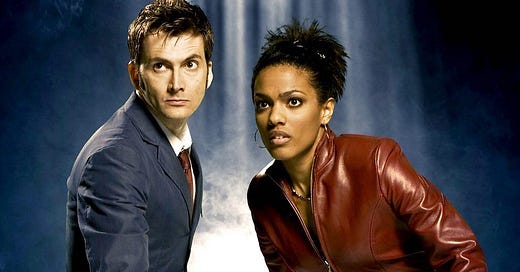



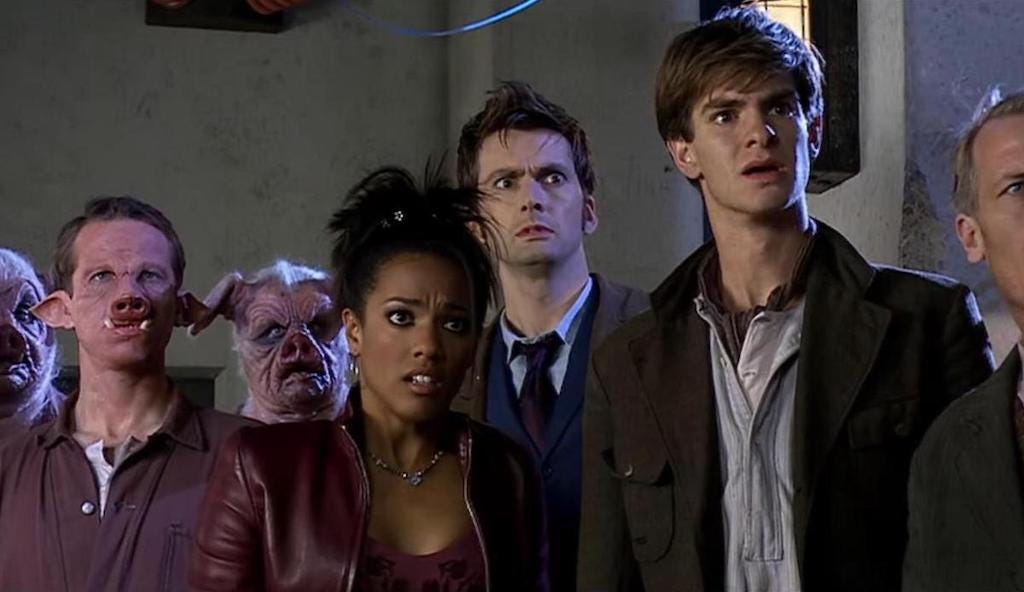
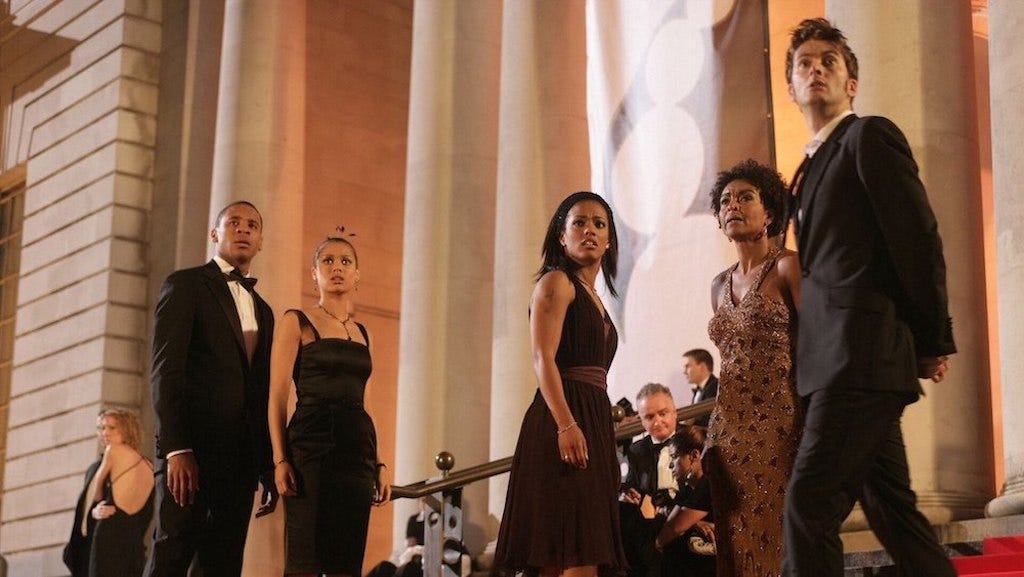
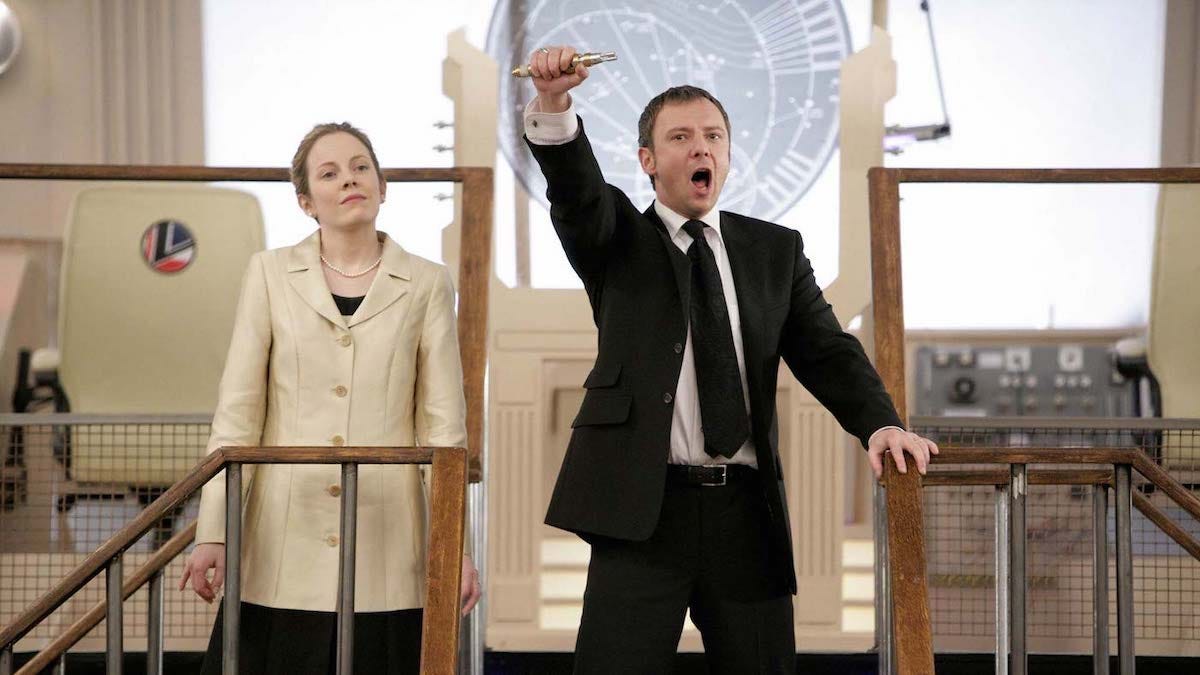
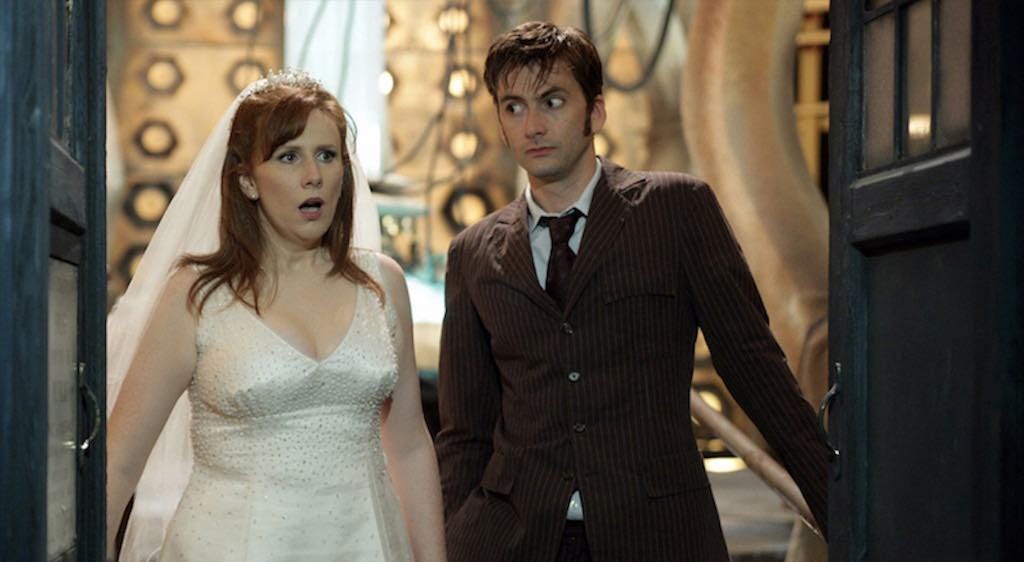

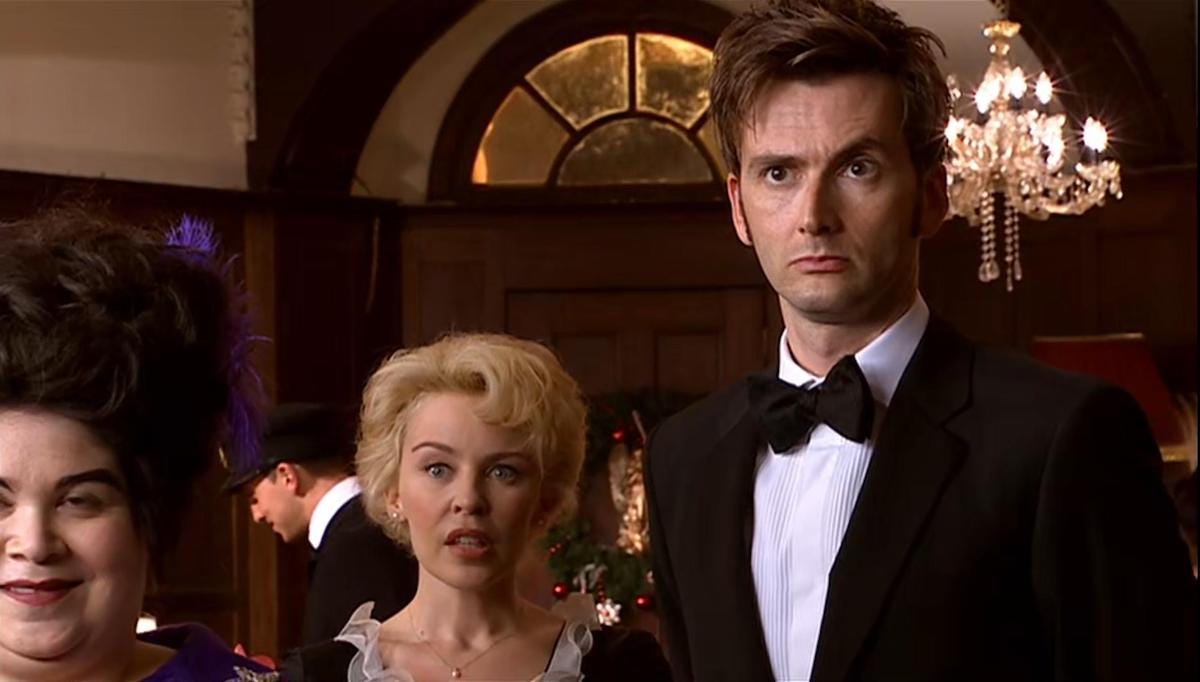
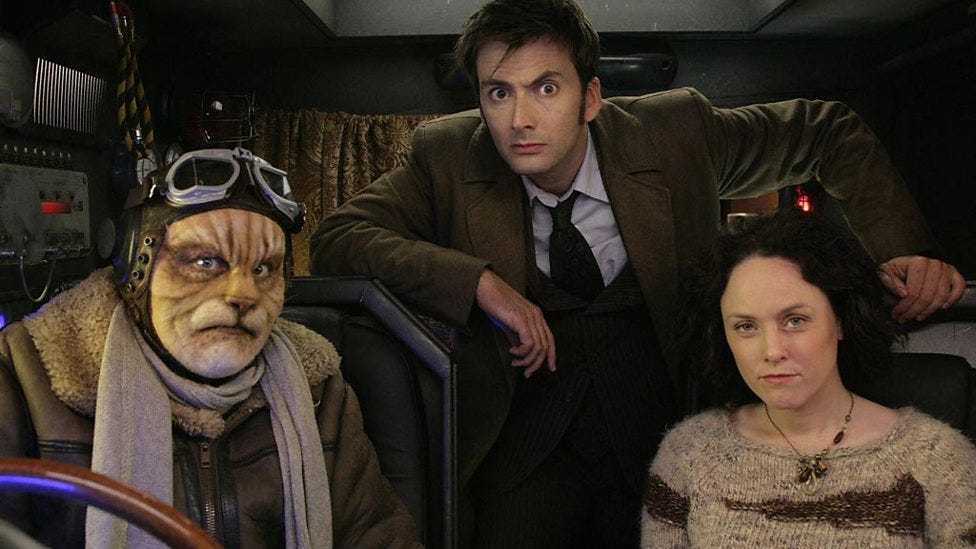
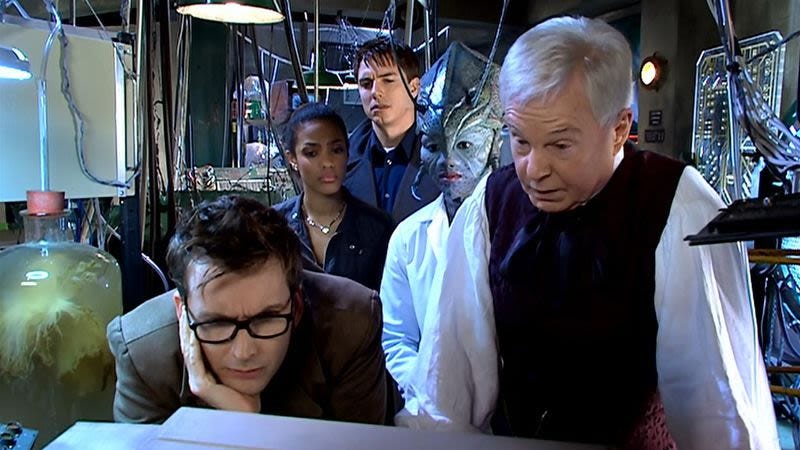
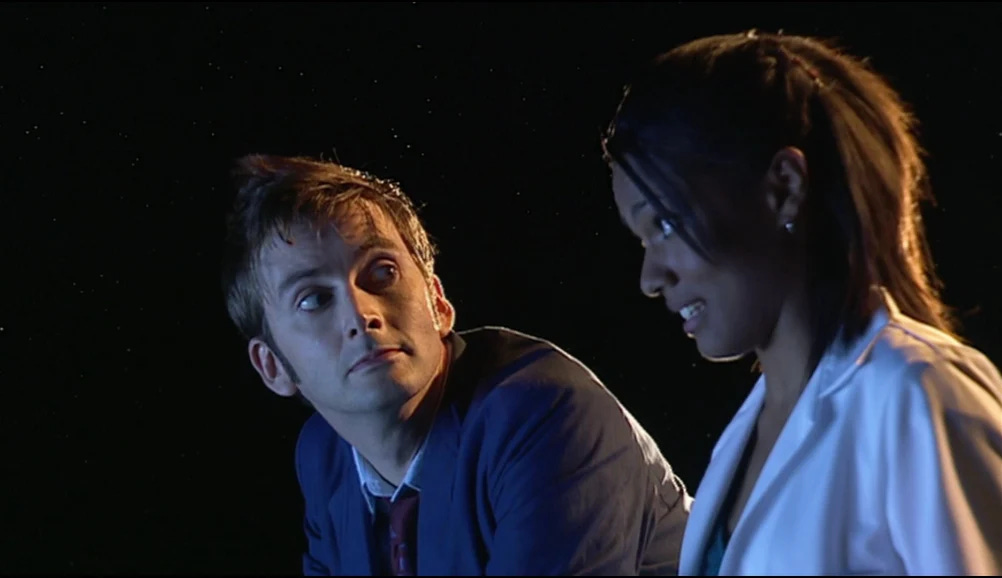
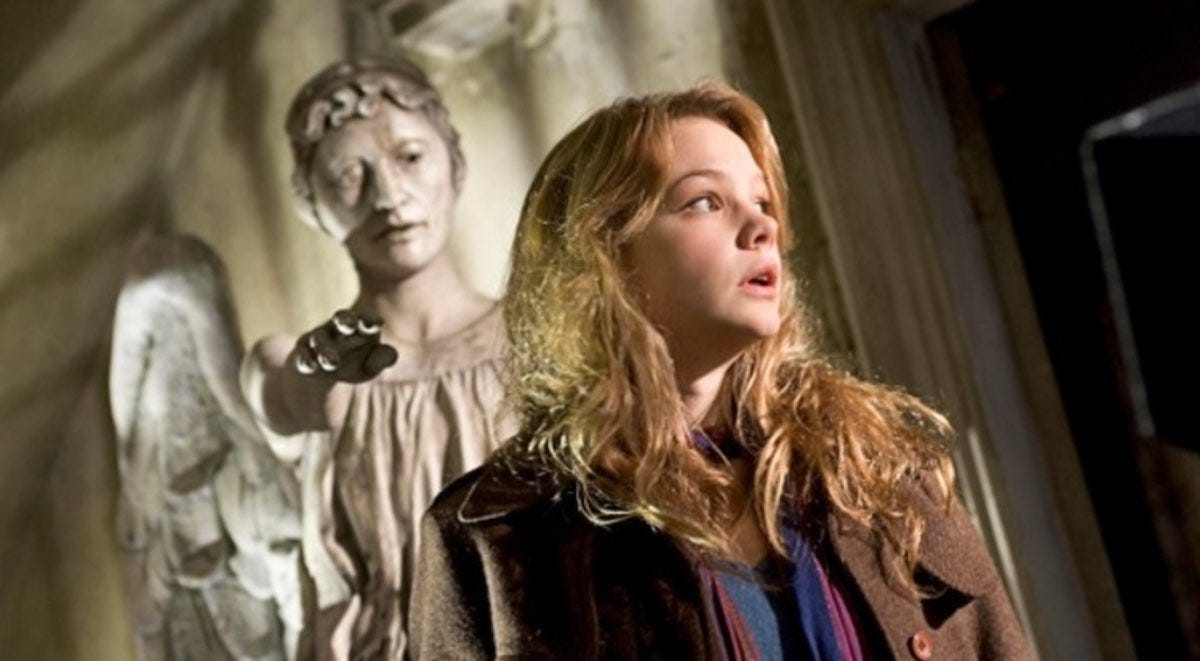

Gridlock is one of those episodes where I find the basic premise so appallingly stupid, I can't enjoy it. It is definitely among my least favorite of all of them. Otherwise, I mostly agree with the rest of this.
Just wanted to say, as a Doctor Who casual, I'm really enjoying these.